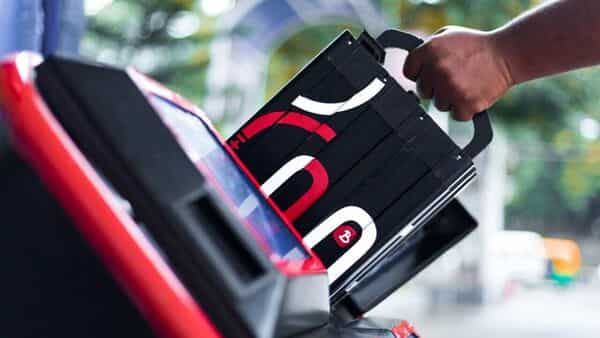Furthering actions towards the recent commitment to achieving net-zero emissions by 2070 at COP 26, the Indian government’s NITI Aayog has recently published its first draft of much awaited “Battery Swapping Policy” for two and three-wheelers.
Battery swapping is the exchange of discharged batteries with charged ones at swapping stations and keeping the vehicle in operational mode with negligible downtime.
In the draft, a new business model, battery as a Service (BaaS) which allows customers to purchase an EV without the battery, has been proposed. As per the draft, this will significantly lower the vehicle’s purchasing costs. At the same time, customers must opt for a periodical subscription model for battery services throughout the vehicle’s lifetime. The following are some key proposals from the policy draft:
1. Minimum Technical and Operational Requirements by battery swapping ecosystems/service providers
- Support to batteries using Advanced Chemistry Cells
- Batteries must be BMS (Battery Management System) enabled
- Use advanced features like IOT-based battery monitoring systems, remote monitoring and immobilization capabilities for battery safety and security. Using Unique Identification Number (UIN) for battery and swapping station is one such proposal for unique traceability of battery throughout its lifecycle.
- BIS standards implementation for batteries. Batteries and BMS must be open for testing for combability checks with various systems and for meeting safety requirements.
- Vehicle OEMs must get approval from ARAI (Automotive Research Association of India) to accept interoperable swappable batteries.
2. Direct and indirect financial support to Battery Providers and EV users
- Suggestion to the GST Council for reducing the differential across the tax rates on Lithium-ion batteries and electric vehicle supply equipment.
- Subsidies to battery providers provided they meet the minimum criteria stated above.
- Linking subsidies with UIN to avoid frauds
- A minimum contract period for the EV users and battery providers to ensure that Battery Providers continue to provide battery swapping services after they receive subsidy.
- Setting up eligibility criteria for rewarding high-quality swappable batteries and EVs.
- Subsidized land for battery swapping stations.
3. Implementation Plan of Battery Swapping Stations/Services (BSS)
- In the first phase (1-2 years), cities with more than 4 million population will be prioritized and later in the second phase (2-3 years), cities with more than five lakhs of the population will be considered.
- Implementation of a battery swapping network across the country will be carried out by the BEE (Bureau of Energy Efficiency).
- These swapping networks will be governed by the state and union territories (UTs) through their transport departments, municipal corporations, DISCOMs and state electricity regulators.
- EVs with swappable batteries can be registered without the battery at state regional transport offices (RTOs).
- Based on the accessibility and utility of EV users, BSS can be by any individual or entity provided they meet the technical, safety and performance standards.
- Proposal for a single window setup, by the state machinery, for submission of documents by the swapping providers and issuing licenses within five days of application.
Industry’s Feedback on the Draft
Most industry experts, academics, and EV makers have welcomed this draft. Academics believe that the government has made the right choice by opting for swapping as it is more realistic for Indian economic conditions. While many developed nations opt for ultrafast charging, it requires a huge investment.
However, they raised a few concerns and gave feedback to the NITI Aayog. Recently, NASSCOM has recommended that batteries with a higher range (80-100km) should be encouraged to avoid detours in search of a swapping station. They also feared that there could be a “range anxiety” among the riders resulting in a swap before the battery dries out.
There are also a few cynics who question the economic feasibility of the battery swapping concept. They also added that ensuing homogeneity in batteries for their interoperability would hinder the new research in the battery. The draft is yet to be implemented and the government is open-minded to all the suggestions and feedback.



Leave A Comment